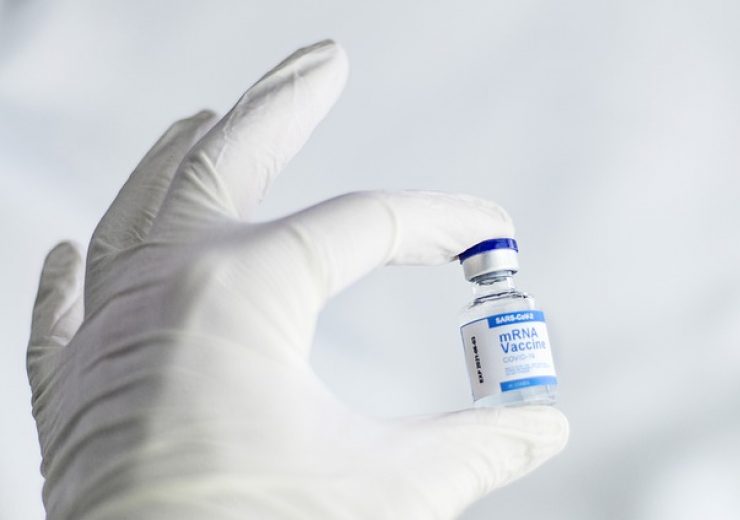Pfizer and BioNTech believe that a third dose may be needed within six to 12 months after the second dose to maintain a high level of protection

Pfizer and BioNTech to develop updated Covid-19 vaccine. (Credit: Spencer Davis from Pixabay.)
Pfizer and BioNTech are planning regulatory submissions to FDA, EMA and other agencies for a booster dose of their Covid-19 vaccine within one month, amid the rapid spread of the Delta variant.
Their Covid-19 vaccine showed 91.3% efficacy from seven days through up to six months after the second dose, in updated trial data.
In the recent data from the Israel Ministry of Health, the vaccine efficacy has declined after six months post-vaccination but showed consistent efficacy against serious illnesses.
Pfizer and BioNTech believe that based on the totality of the data, a third dose may be needed within six to 12 months after the second dose, to maintain the highest levels of protection.
Pfizer chief scientific officer Mikael Dolsten told Reuters: “The recently reported dip in the vaccine’s effectiveness in Israel was mostly due to infections in people who had been vaccinated in January or February.
“The country’s health ministry said vaccine effectiveness in preventing both infection and symptomatic disease fell to 64% in June.
BioNTech said that the ongoing booster trial of a third dose BNT162b2 vaccine showed promising data against all tested variants including Delta.
Pfizer and BioNTech are developing an updated version of their Covid-19 vaccine with an aim to target the full spike protein of the Delta variant.
They manufactured the first batch of the mRNA vaccine at BioNTech’s facility in Mainz, Germany to conduct clinical studies from next month, subject to regulatory approvals.
The placebo-controlled efficacy study of the booster dose will enrol 10,000 participants and is expected to be used for the regulatory submissions.
Dolsten added: “The Pfizer vaccine is highly active against the Delta variant. But after six months, there likely is the risk of reinfection as antibodies, as predicted, wane.”
“It’s a small data set, but I think the trend is accurate: Six months out, given that Delta is the most contagious variant we have seen, it can cause infections and mild disease.”
